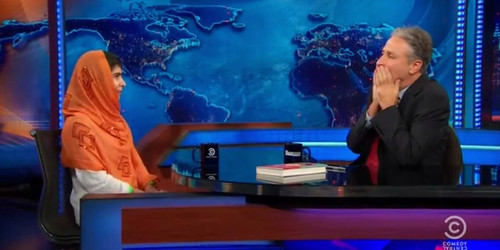As a Christian, I believe peace, nonviolent resitance, forgiveness, and enemy love are staples of the faith and essential teachings of Jesus Messiah.
So this weekend, as a part of our middle school youth retreat, I thought I would do my best to illustrate Walter Wink's classic interpretation of Jesus' call to go the extra mile and turn the other cheek.*
I had done this before, usually as a part of our confirmation curriculum, but I had never had a reaction quite like the one elicited by one of my sixth grade girls.
She played the role of a first-century Palestinian Jewish peasant.
I played the role of a first-century Roman soldier.
After explaining the Roman laws about forced labor and pack-carrying "etiquette," I piled up on this petite sixth grader my computer bag, a few books, and a stool. I then commanded her to follow me around the room. And when I told her the one-mile limit had been met, she demanded to go a second.
"You are free to go now," I said as I tried to take back my stuff.
"I am going a second mile," she timidly retorted as she pulled back.
"No, you are free to go." I grabbed at the stool.
"I want to go a second mile with you." She gripped the stool tighter.
"You can't." I reached for the bag on her shoulder.
"That doesn't matter." She readjusted and clamped on the bag's strap.
"Why are you doing this?"
"My teacher told me to go the second mile," she spoke with a quiver.
"Who is your teacher?"
"Jesus. Jesus told me to do this."
I froze. I was not expecting God to move me through this sixth grader and her unprompted and unrehearsed exchange.
The youth pastor followed the lead of this sixth grader, arms full of his stuff. I was drawn into how she played the part and knew the Way of her teacher. The roles reversed and the smaller sixth grader had shifted the balance of power without force or violence. Resistance through nonviolent rhetoric animated with authenticity and humility.
Thank you, Jenna. Indeed, the kingdom of God belongs to children like you!
I have occasionally been warned, and have even hesitated myself, about teaching Jesus' third way in Matthew 5:38-42. After all, it may not be in line with their parents' teachings. Youth may mis-hear the teaching and respond to violence in a way that places them at greater risk.
They may not fully understand what Jesus was actually saying.
Then I think of this particular sixth grader, and others like her, and reconsider.
I also think of sixteen-year old Malala Yousafzai, who was able to leave John Stewart speechless and in awe whe she spoke about what she would say if she met a member of the Taliban. Mind you, the Taliban attempted,and nearly succeeded, to kill her with a bullet to the head in 2012.****
I need to read Malala's book. We all need to hear her speech here.
May we never underestimate youthful animations of peacemaking and prophetic expressions of nonviolent resitance. May we never refuse them the keys of the kingdom and space to think about third-way conflict resolutions.
May we never forget that the peaceable kingdom of God belongs to children.
May we even follow their lead as they animate the Way of Jesus.
Note:
*Excerpt from Engaging the Powers: Discernment and Resitance in a World of Domination by Walter Wink.
"Imagine, then, the soldier's surprise when, at the next mile marker, he reluctantly reaches to assume hispack, and the civilian says, "Oh, no, let me carry it another mile." Why would he want to do that? What is heup to? Normally, soldiers have to coerce people to carry their packs, but this Jew does so cheerfully, and willnot stop'. Is this a provocation? Is he insulting the legionnaire's strength? Being kind? Trying to get him disciplined for seeming to violate the rules of impressment? Will this civilian file a complaint? Create trouble? From a situation of servile impressment, the oppressed have once more seized the initiative. They have taken back the power of choice. They have thrown the soldier off balance by depriving him of the predictability ofhis victim's response. He has never dealt with such a problem before. Now he must make a decision for which nothing in his previous experience has prepared him. If he has enjoyed feeling superior to the vanquished,he will not enjoy it today. Imagine a Roman infantryman pleading with a Jew to give back his pack! The humor of this scene may have escaped us, but it could scarcely have been lost on Jesus' hearers, who must have been delighted at the prospect of thus discomfiting their oppressors.
Jesus does not encourage Jews to walk a second mile in order to build up merit in heaven, or to be pious,or to kill the soldier with kindness. He is helping an oppressed people find a way to protest and neutralize anonerous practice despised throughout the empire. He is not giving a nonpolitical message of spiritual world transcendence. He is formulating a worldly spirituality in which the people at the bottom of society or underthe thumb of imperial power learn to recover their humanity" (182).
**Other great reads by Wink, The Powers That Be: Theology for a New Millenium, and the abbreviated text of the work cited above, Jesus and Nonviolence: A Third Way.
***See a previous post, More Creative Than Violence.
****Interesting alternative perspectives:

